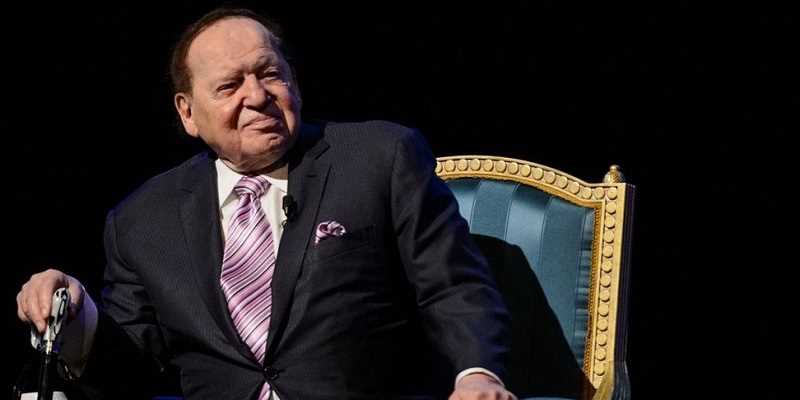Sheldon Adelson, the founder and CEO of Las Vegas Sands, passed away on January 11 in Malibu, California.
And though Adelson was a pivotal figure for the US gambling industry in life, his impact in death may resonate even more profoundly for the market going forward.
This is largely due to the fact that Adelson, as a billionaire lobbyist and political donor with a tremendous interest in brick-and-mortar casinos, has long been an adversary of the evolution to online gambling, or iGaming.
There is no doubt that Internet-based casinos, sportsbooks, and poker rooms are the future, as demonstrated by the massive, long-lasting success of the top international gambling sites that have accepted US players for generations.
Additionally, the dramatic impact of the 2020 coronavirus outbreak was felt no more sharply than it was in the gaming industry, as retail casinos closed down throughout the United States.
In Nevada alone, 2020 revenues were down an incredible 95+ percent compared to 2019.
Clearly, the market will not be able to survive another pandemic unless it has a robust and accessible online component.
To be clear, none of this comes as a surprise to lawmakers, who have been trying – in many states nationwide – to pass online gambling legislation for years, only to be blocked by Adelson and his various business interests.
Currently, only five states offer legal online gambling in a domestic capacity:
- Delaware
- Michigan (pending launch)
- New Jersey
- Pennsylvania
- West Virginia
And naturally, these states (excepting MI) suffered the most limited losses of all casino-friendly states in the US during 2020.
For example, New Jersey – thanks to its heavy iGaming presence – closed the year down just 40% or so, a drop in the bucket compared to the near total losses that Las Vegas posted.
This is entirely due to the fact that residents could legally and safely play online casino games during the COVID-19 pandemic.
Of course, it goes without saying that there won’t be a pandemic every year, but with the cat out of the bag, any contagion deemed more virulent or problematic than the common seasonal flu could potentially lead to similar crises in the future.
This is something that the casino industry – and many other American industries – must plan for and be ready to face head-on.
It would be professional malpractice to simply resume business as usual without such safeguards in place.
But even beyond all that, the data is clear:
Bettors and gamblers prefer the convenience of online play to the cost and time expenditures required to travel to brick-and-mortar casino districts in order to play their favorite table games, enjoy electronic casino games, participate in real-money poker tournaments, and bet on sports.
Mobile gambling sites are the future (and the past and present, if you play with any of the legitimate international betting sites that have been taking US players for generations).
Now, with Adelson’s influence diminished in various political circles all across the country, the opportunity is there to push an online gambling agenda – more smoothly and more quickly – than ever before.
To be clear, some states will not be interested in moving their gambling markets online, regardless of Adelson’s previous lobbying.
Gambling is still viewed as an unhealthy vice in many states – and not just conservative regions like Utah but also in largely liberal states like Hawaii.
Further, in many states, there are tribal compacts in place that grant federally-recognized Native American groups exclusive rights to offer proper casino gambling.
Many of these tribes actually oppose online gambling for the same reason Adelson did: It reduces foot traffic to their reservations’ venues, and it will cannibalize their downmarket industries like food service, hospitality, and more.
Still, for many other states – particularly those with established commercial casinos and other gambling opportunities up and running – it makes all the sense (and dollars!) in the world to expand their gaming efforts to the online space.
We hope, for the majority of these, that they see the writing on the wall, realize that there are fewer roadblocks than ever, and boldly go forward with plans to bring domestic gambling to the Internet.
Adelson was instrumental in making gambling a bona fide institution in America, and for that, we will always be grateful.
But he has moved on to a better place, and it’s time for the US gambling market to revise its online betting laws and do the same.
Source: Las Vegas Review-Journal

